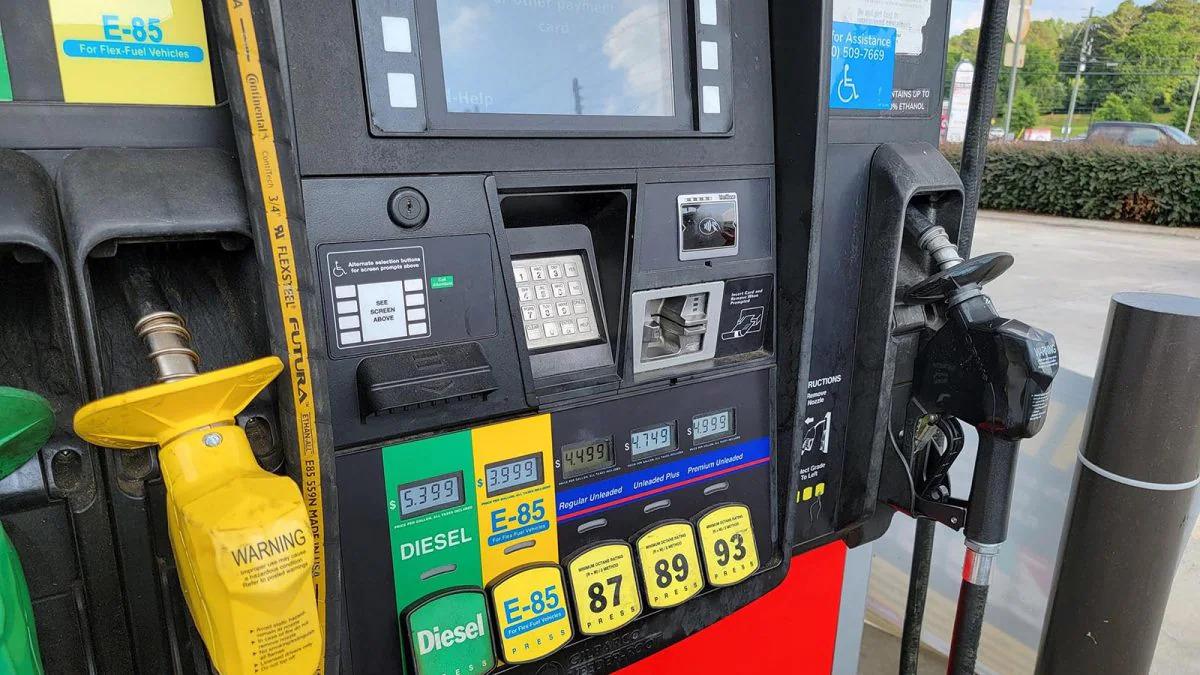Miller-Meeks, Craig Introduce the Flex Fuel Fairness Act of 2023

WASHINGTON, D.C. — U.S. Representatives Mariannette Miller-Meeks (IA-01) and Angie Craig (MN-02) introduced the Flex Fuel Fairness Act of 2023, legislation that will level the playing field for vehicles running on low-carbon liquid fuels, like ethanol.
“As we look toward a cleaner energy future with options to lower carbon emissions, it’s imperative to amplify solutions like flex fuel vehicles (FFVs) and ensure that they are included as a low-carbon option,” said Miller-Meeks. “FFVs provide more options for consumers and the U.S. supply chain and unlock increased use of lower-carbon liquid fuel blends containing higher levels of ethanol, like E30 and E85. I am proud to lead the ‘Flex Fuel Fairness Act of 2023,’ and level the playing field for FFVs as a practical alternative to Electric Vehicles.”
“Renewable fuels are a solution we can implement to combat climate change right now, and we know that flex fuel vehicles help Minnesotans save money at the pump, support family farmers and producers and help protect the environment,” said Craig. “That’s why I introduced this bipartisan bill with my colleague Rep. Miller-Meeks to expand flex-fuel vehicle production – and I’ll keep working to get our bill passed.”
“We thank Reps. Miller-Meeks, Craig and all the co-sponsors for introducing the Flex Fuel Fairness Act of 2023, which acknowledges the important emissions benefits of flex fuel vehicles and promotes the continued production of these popular automobiles,” said Renewable Fuels Association President and CEO Geoff Cooper. “This legislation would provide more clean vehicle options for consumers and give automakers more ways to comply with increasingly stringent vehicle emissions standards. By leveling the playing field for all clean vehicle technologies, this bill allows low-carbon liquid fuels like ethanol to work alongside clean electricity, electric vehicles, and other technologies to reduce emissions from transportation.”
Bill cosponsors at the time of introduction include: Representatives Ashley Hinson (IA-02), Randy Feenstra (IA-04), Derrick Van Orden (WI-03), and Brad Finstad (MN-01)
Read the full text of the bill here.
Background:
The EPA recently proposed tailpipe CO2 emissions standards for 2027-2032 light-duty vehicles that would require up to two-thirds of cars and trucks in the U.S. to be electric in just eight years and threaten the availability of gas-powered vehicles necessary in agriculture and rural communities like southeast Iowa.
The new emissions standards require automakers to meet certain tailpipe CO2 emissions values, on average, across their fleet of new vehicles. The EPA’s proposed approach for EVs (i.e., using a value of 0 grams/mile) assumes every EV produced by automakers will only use zero-carbon renewable electricity. However, the EPA’s proposed approach ignores the significant CO2 emissions associated with critical mineral extraction, EV battery production, and the production and transmission of electricity used to recharge EV batteries.
Meanwhile, the EPA’s proposal does not recognize or account for the meaningful CO2 emissions savings that can be achieved through expanding biofuels use in vehicles designed to accommodate higher blends, including flex fuel vehicles.
For the purposes of determining CO2 tailpipe emissions compliance performance values, flex fuel vehicles (FFVs) capable of operating on E85 should be assumed to operate on E85 all of the time, just as EVs are assumed to operate on zero-carbon electricity all of the time. Automakers who manufacture FFVs should be allowed to use a compliance tailpipe CO2 emissions value that reflects the lifecycle CO2 savings from using E85.
The Flex Fuel Fairness Act of 2023 would ensure that, for purposes of determining fleet average CO2 standards, manufacturers may use a gram per mile CO2 value for FFVs that is 31% lower than the gram per mile CO2 value or the same vehicle model that is not a flexible fuel vehicle.
###
